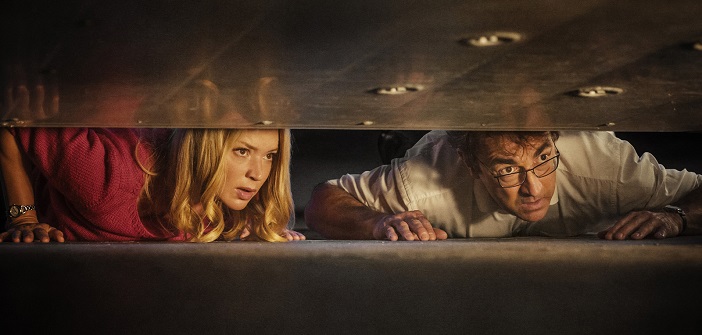Returning to theaters after a brief run last fall, the film is not bad. Albert Dupontel clearly has a knack and an artistic touch that are now uniquely his own, that’s undeniable.
However, in this film and its story, there is a somewhat foolish, naive, and clumsy aspect in both the comedy and the emotional scenes that weigh the film down. Everything is too heavy-handed, too explicit, and lacks the necessary subtlety.
The dialogues aren’t always very refined, the ludicrous situations are sometimes awkward, and the main male characters are quite silly (especially the blind archivist. And what to say about the character of the found son?).
It’s surprising to see this naivety in spirit and writing, given that the film is rich with staging ideas (although sometimes a bit too flashy).
Yet there are lovely light and reflection effects that are original, but alongside that, there are scenes and locations that give the impression of being fake and theatrical sets, such as the old hospital location, which feels very artificial.
This substantially undermines the credibility of the story, this romance (which at times is triangular) that seems quite improbable.
Finally, the flashbacks (the youthful love of the character played by Virginie Efira) seem a bit fake, as if artificially tacked on, and struggle to integrate well into the editing.
The themes addressed, particularly the dehumanization of society, are dealt with in a rather simplistic way and sometimes come across as a big farce, perhaps playing too much on the popular and good-natured side.
On the other hand, the cinematography is very meticulous, with those warm tones that are very pleasant and immerse us in a cozy fairytale-like atmosphere. The editing is sharp and efficient. Among the very positive aspects, special mention goes to Virginie Efira, whose performance truly manages to evoke emotion and empathy for her character.


